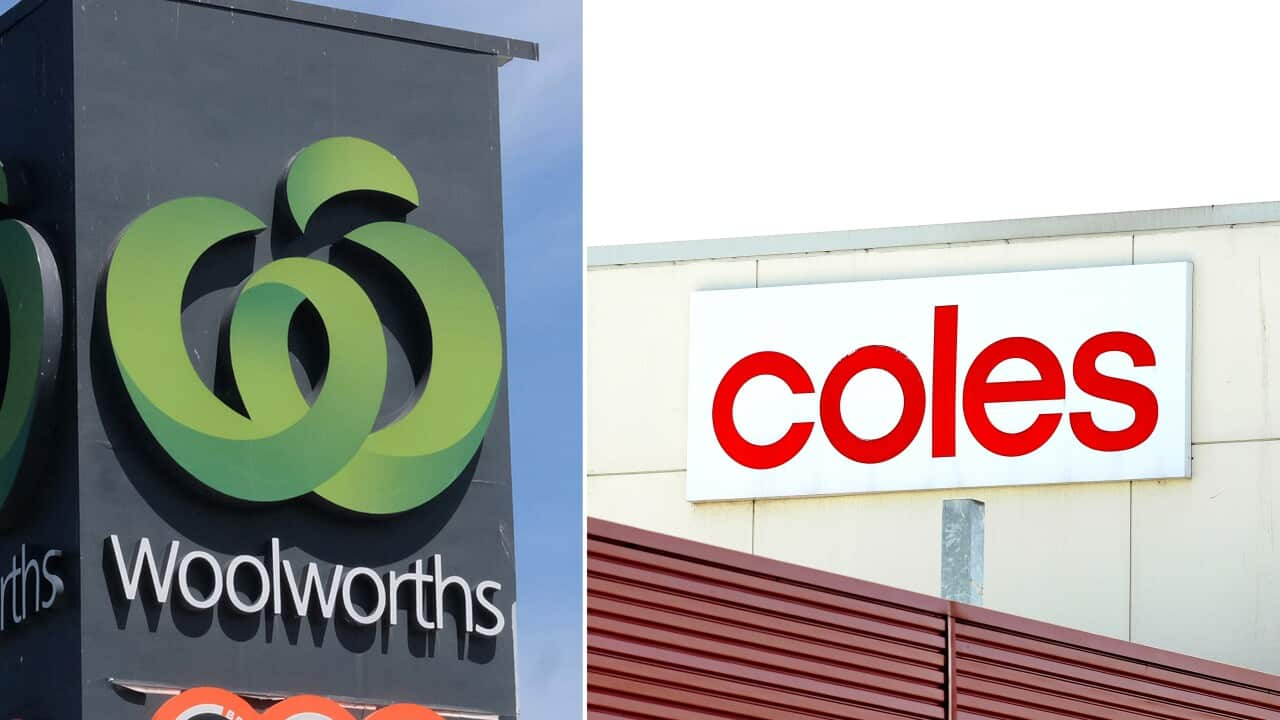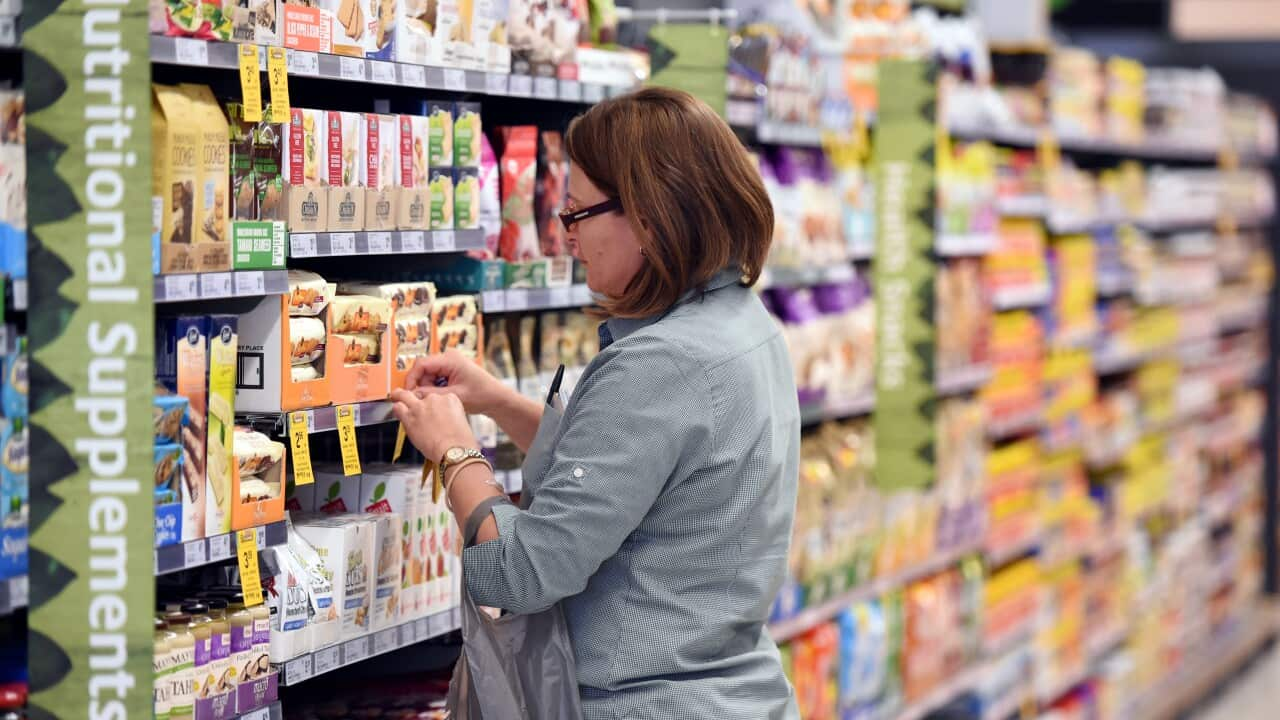The extent to which customers have lost trust in Australia's supermarkets and the tactics Coles and Woolworths use to price products differently around the country has been revealed by a scathing new report.
The Australian Competition and Consumer Commission (ACCC) report has also questioned whether supermarkets are increasing their profits at the cost of primary producers.
It also reveals that shoppers might pay more at one of the supermarket giants' smaller footprint stores.
The report summarises the competition watchdog's findings halfway through .
Here are some of the ACCC's key findings so far.
Customers losing trust in supermarkets
Many consumers told the inquiry they were losing trust in supermarkets' claims about sale prices.
"These difficulties reportedly arise from some of the pricing practices of some supermarkets, such as frequent specials, short-term lowered prices, bulk-buy promotions, member-only prices and bundled prices," deputy chair Mick Keogh said.
Almost half the respondents of the ACCC's recent consumer survey said they "always" or "most times" compared prices between stores before shopping.
Many customers also expressed concerns that they were being financially penalised for not signing up to support loyalty programs like FlyBuys or Everyday Rewards — run by Coles and Woolworths, respectively.
"With the introduction of member-only pricing, some consumers may feel they have no option but to participate in loyalty programs, even if they have concerns about handing over data to the supermarkets," Keogh said.
Supermarket profits scrutinised
A typical basket of groceries has increased in price by more than 20 per cent over the past five years, the inquiry found, which has left many .
The ACCC has also examined the extent to which supermarket price rises are due to increased production costs.
Woolworths' submission to the inquiry said the company had "experienced unexpected numbers of cost increase requests by packaged grocery suppliers".
In a recent statement, Coles said its price increases were related to the large number of price increases from its suppliers, "which led to an increase in the retail price of many products", as reported by the ABC.
However, one confidential submission to the inquiry claims primary producers are receiving the same price for horticulture products that they were before the COVID-19 pandemic, despite facing higher production costs.
The submission said primary producers haven't made a profit for the last 12 to 18 months and have been unsuccessful in passing their increased costs on to retailers.
Another submission by the Australian Fresh Produce Alliance said that "on average, the cost of producing fruit and vegetables in Australia has increased by 18.9 per cent" between 2018–19 and 2022–23.
Meanwhile, the ACCC found that, over the past years, both Coles and Woolworths had increased their earnings before interest and taxes (EBIT) margins — a key indicator of company profitability.
"Our preliminary analysis suggests Coles and Woolworths may appear more profitable, than some of their international peers, using some profitability metrics," the report reads.
"However, this is significantly influenced by the profitability metric adopted and the business level considered."
"Many Australian consumers and grocery suppliers have told the ACCC they are concerned that some of Australia’s supermarket retailers have considerable market power and are engaging in practices which disadvantage both their customers and suppliers," the competition watchdog said.
You could get charged more for shopping at a metro retailer
Coles told the inquiry that it charged customers the same price for the same products across its supermarkets and Coles Local stores.
Woolworths, meanwhile, conceded prices may vary between its supermarkets and Metro outlets.
The major supermarket chains have told the ACCC that, "in practice, most of their product prices are consistent nationally" but "some products may be priced differently across stores", for example:
- When products are marked down for clearance
- When products are subject to state-based promotional activity
- For fresh food, which is generally priced on a state basis
- For remote stores, due to higher transport or freight costs to these areas
- When products are purchased online or in different format stores
- When products are subject to a state or territory legislative requirement.
The ACCC said it was "gathering detailed information from supermarkets on grocery prices and price setting practices to further assess these matters" and would include its findings in the final report.
What will the rest of the inquiry look at?
The ACCC noted the price of food at supermarkets was largely in line with inflation in other goods and services, and food price inflation in Australia was, in fact, lower than that of most other Organisation for Economic Co-operation and Development (OECD) countries.
But it said it would spend the remaining months of the inquiry closely examining if and how supermarkets' market power impacted consumers and suppliers.
In particular, it will focus on these 14 products:
- Beef
- Chicken
- Pork
- Bananas
- Apples
- Strawberries
- Cucumbers
- Potatoes
- Eggs
- Milk
- Cereal
- Biscuits
- Pet food
- Dishwashing tablets
"We will examine whether supermarkets are exercising market power to increase retail prices more than is necessary to accommodate increases in the wholesale prices supermarkets pay," Keogh said.
"We are also examining whether supermarkets are engaging in other business practices that may cause detriment to consumers or suppliers."
The ACCC will also conduct public hearings involving senior executives of the major retailers in November.
The ACCC's final report is due in February 2025.



